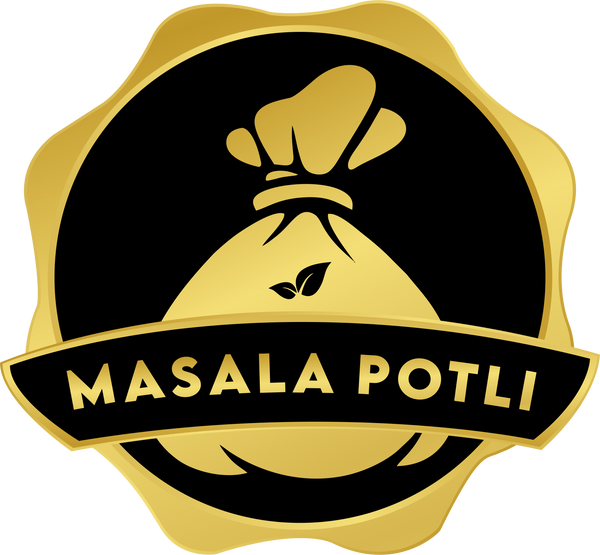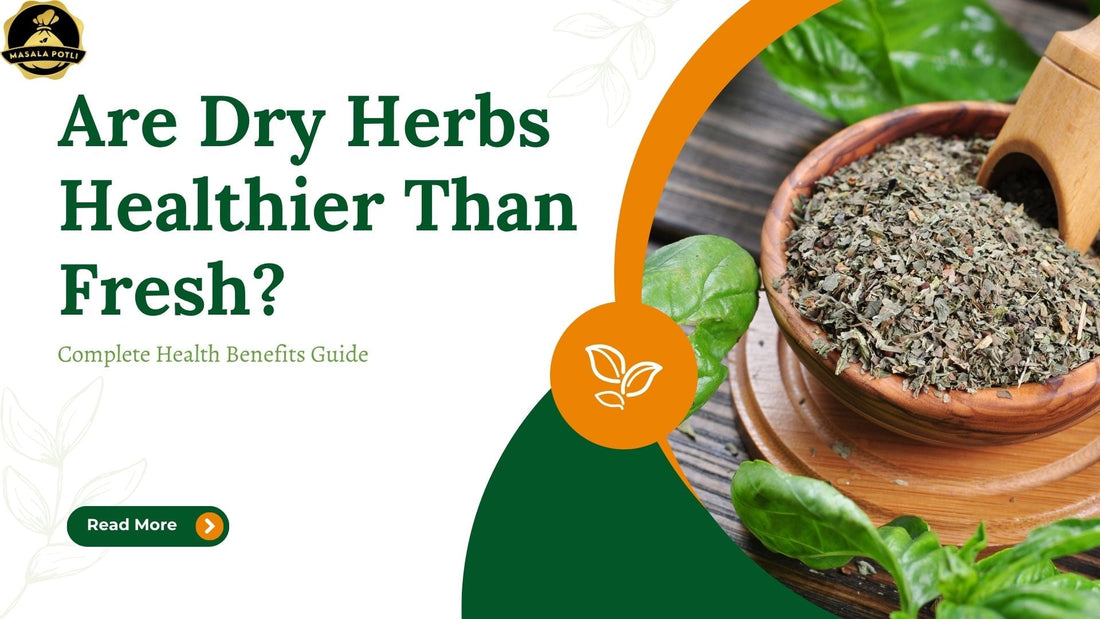Are dry herbs healthier than fresh herbs?
This question pops up in every home cook's mind when they're deciding between that vibrant fresh basil bunch and their trusty jar of dried oregano. The answer isn't as straightforward as you might think! Both fresh and dry herbs offer unique health benefits, but understanding when to use each type can transform your cooking and boost your nutrition. Let's dive deep into this herb debate and discover which option deserves a permanent spot in your kitchen.
The Nutritional Showdown: Fresh vs Dry Herbs
Fresh Herbs: Nature's Vitamin Powerhouses: Fresh herbs are like nutritional superstars packed with water-soluble vitamins. Here's what makes them special:
- Higher Vitamin C content - essential for immune system support
- Fresh antioxidants that fight free radicals in your body
- Natural enzymes that aid digestion and nutrient absorption
- Vibrant phytonutrients responsible for their bright colors
However, fresh herbs have their limitations. They spoil quickly, losing nutrients as they age. Plus, they're often more expensive and harder to find year-round.
Are Dry Herbs Healthier? The Surprising Truth
Here's where it gets interesting - dry herbs can actually be more nutritious in certain aspects. Concentrated Nutrition Benefits:
- Higher mineral content - iron, calcium, and potassium become more concentrated
- Longer nutrient preservation - no spoilage means no nutrient loss
- Better bioavailability - some compounds become easier for your body to absorb
- Consistent potency - same nutritional value every time you use them
The drying process concentrates many nutrients while removing water weight. This means a teaspoon of dried oregano often contains more minerals than the same amount of fresh oregano!
Health Benefits of Dried Herbs You Didn't Know About
- Antioxidant Concentration: Dried herbs like oregano and thyme contain concentrated antioxidants that may help reduce inflammation and support heart health.
- Mineral Density: The dehydration process increases the concentration of essential minerals per gram, making dried herbs excellent sources of:
- Iron for healthy blood
- Calcium for strong bones
- Potassium for heart health
- Digestive Support: Many dried herbs contain compounds that aid digestion. Dried basil and parsley are particularly beneficial for digestive health.
When to Choose Fresh vs Dry Herbs for Maximum Health Benefits
- Use Fresh Herbs When:
- Making raw preparations like salads or garnishes
- You need maximum Vitamin C content
- Creating herb oils or pestos
- Adding final touches to cooked dishes
- Use Dry Herbs When:
- Cooking for longer periods (soups, stews, curries)
- You want consistent nutritional value
- Making spice blends and seasonings
- Budget and convenience matter
Best Dried Herbs for Health and Flavor
Looking for premium quality dried herbs? Here are the top performers. Top Healthy Dried Herbs:
- Dried Oregano - Packed with antioxidants and perfect for Mediterranean dishes
- Dried Basil - Excellent source of vitamin K and adds authentic Italian flavor
- Dried Thyme - Contains powerful antimicrobial properties
- Dried Rosemary - May support brain health and memory
- Dried Parsley - Rich in vitamins A, C, and K
How to Maximize Health Benefits from Both Fresh and Dry Herbs
- Storage Tips for Maximum Nutrition:
- Store dried herbs in airtight containers away from light
- Use fresh herbs within a week of purchase
- Freeze fresh herbs in ice cube trays with olive oil for longer storage
- Cooking Methods That Preserve Nutrients:
- Add fresh herbs at the end of cooking
- Use dried herbs early in the cooking process
- Avoid overcooking to preserve delicate compounds
The Quality Factor: Why Source Matters
Not all dried herbs are created equal. Sun-dried, naturally processed herbs retain more nutrients than artificially dried ones. Quality indicators to look for:
- Natural drying methods
- Proper storage containers
- Vibrant color and aroma
- Hygienically processed
Real-Life Kitchen Solutions
Problem: Running out of fresh herbs mid-cooking
Solution: Keep a well-stocked collection of dried herbs as backup
Problem: Expensive fresh herb purchases going to waste
Solution: Invest in quality dried herbs that last months and provide consistent flavor
Problem: Inconsistent seasoning in your dishes
Solution: Use measured amounts of dried herbs for reliable results every time
The Bottom Line: Both Have Their Place
Are dry herbs healthier than fresh? The answer is: it depends on what you're looking for!
- For vitamin C and fresh enzymes - choose fresh
- For concentrated minerals and convenience - go with dried
- For year-round consistency - dried herbs win
- For immediate flavor impact - fresh herbs excel
The healthiest approach? Use both types strategically based on your cooking method and nutritional goals.
Expert Tips for Herb Selection
- Buy dried herbs from reputable sources that prioritize quality processing
- Replace dried herbs every 6-12 months for best flavor and nutrition
- Combine both types - use dried for cooking base, fresh for finishing
- Consider organic options when possible for both fresh and dried varieties
Ready to upgrade your herb game with premium quality dried herbs? Explore Masala Potli's complete dried herbs collection and discover the difference quality makes in both flavor and nutrition. Your taste buds (and your health) will thank you!
___________________________________________________________________________________
By Anshika Shekhawat




